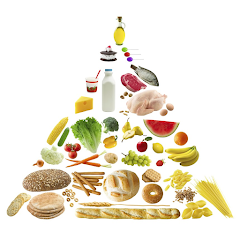The Nutrition: Unlocking the Secrets to Optimal Health
Introduction
Welcome to a comprehensive guide on the nutrition, where we delve into the intricacies of nourishing your body for optimal health and well-being. In this article, we will explore the key aspects of nutrition, debunk common myths, and provide you with practical tips to improve your dietary choices. Our aim is to equip you with valuable insights that will empower you to make informed decisions about your nutrition, leading to a healthier and more vibrant life.
Understanding the Basics of the nutrition
The Fundamentals of The Nutrition
Nutrition forms the foundation of our overall health. It encompasses the process by which our bodies obtain and utilize the essential nutrients required for proper functioning. These nutrients include carbohydrates, proteins, fats, vitamins, minerals, and water. Each nutrient plays a vital role in sustaining various bodily functions and promoting overall well-being.
Unraveling the Macro and Micronutrients
Macro and Micronutrients: Explained
Macro and micronutrients are two main categories of essential nutrients. Macro or macronutrients are needed in larger quantities and provide energy to our bodies. They include carbohydrates, proteins, and fats. On the other hand, micronutrients are required in smaller amounts and do not provide energy directly. These include vitamins and minerals, which act as catalysts for numerous bodily processes.
Busting Nutrition Myths
Myth: Carbohydrates Are the Enemy
There has been a prevailing misconception that carbohydrates are solely responsible for weight gain. However, the truth is that carbohydrates are an essential energy source for our bodies. The key lies in choosing the right types of carbohydrates, such as whole grains, fruits, and vegetables, while moderating the intake of refined sugars and processed foods.
Myth: Fats Should Be Avoided
Contrary to popular belief, not all fats are harmful. In fact, healthy fats, such as those found in avocados, nuts, and olive oil, are crucial for maintaining optimal brain function, supporting heart health, and absorbing certain vitamins. It is important to distinguish between good fats and unhealthy trans fats, commonly found in processed and fried foods.
Key Principles for Optimal Nutrition
Balancing Macronutrients
A well-balanced diet involves a careful distribution of macronutrients. While the ideal proportions may vary based on individual needs, a general guideline suggests consuming approximately 50% of calories from carbohydrates, 20-30% from fats, and 20-30% from proteins. This balance ensures a steady supply of energy, supports muscle growth and repair and maintains overall bodily functions.
Emphasizing Whole Foods
Whole foods, such as fresh fruits, vegetables, whole grains, and lean proteins, are the cornerstone of a nutritious diet. These foods are rich in essential nutrients, fiber, and antioxidants, promoting optimal health and reducing the risk of chronic diseases. Incorporating a variety of colors and textures into your meals ensures a wide array of vitamins and minerals.
Hydration: The Elixir of Life
Water is often overlooked but is paramount for maintaining proper bodily functions. Staying adequately hydrated supports digestion, nutrient absorption, temperature regulation, and overall cellular health. Aim to drink at least 8 glasses of water per day and adjust your intake based on your activity level and environmental conditions.
Practical Tips for a Nutritious Lifestyle
Meal Planning and Portion Control
Creating a weekly meal plan and preparing meals in advance can help you make healthier choices throughout the week. Additionally, practicing portion control allows you to enjoy a variety of foods without overindulging. Be mindful of your hunger and fullness cues, and strive for balanced meals that include a mix of protein, complex carbohydrates, healthy fats, and vegetables.
Mindful Eating
In our fast-paced lives, we often rush through meals without paying attention to our body's signals. Mindful eating encourages you to slow down, savor each bite, and listen to your body's cues of hunger and satisfaction. By practicing mindful eating, you develop a deeper connection with your food, make healthier choices, and cultivate a positive relationship with eating.
Reading Food Labels
When grocery shopping, take the time to read and understand food labels. Look for products with minimal additives, artificial sweeteners, and hydrogenated oils. Focus on whole, unprocessed foods, and choose options that are low in added sugars, sodium, and saturated fats. Being informed about the contents of your food allows you to make more conscious and nutritious choices.
Conclusion
Nutrition is a multifaceted aspect of our lives that greatly impacts our well-being. By understanding the fundamentals of nutrition, debunking common myths, and implementing key principles, you can embark on a journey toward optimal health. Remember to prioritize a well-balanced diet, incorporate whole foods, stay hydrated, and practice mindful eating. By making these small but significant changes, you can unlock the secrets to a healthier, more vibrant life





No comments:
Post a Comment
If you have any doubts please let me know.